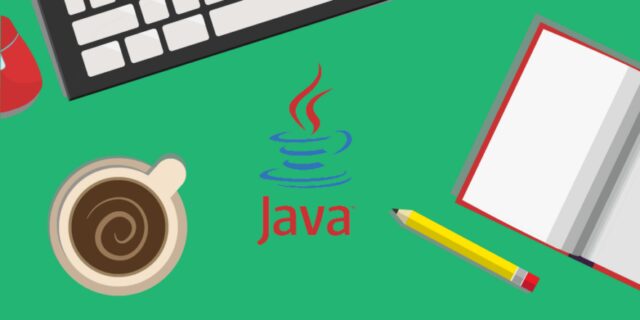
Are you dreaming of becoming a software engineer? Do you want to learn Java but don’t know how much time it takes to master it?
With this article, we will help you understand the learning curve for Java and what tools can help you on your journey. You can achieve your goal with dedication and the right resources!
What Are the Prerequisites to Learning Java?
Before beginning your journey with Java, it is important to understand the prerequisites for learning this popular programming language. First and foremost, you should possess basic knowledge of computing concepts and computer objectives such as variables, data types, and operators. Additionally, having a strong understanding of object-oriented programming terminologies such as class, objects, methods, and inheritance can be beneficial.
Before diving into the syntax of Java language itself, you should be familiar with basic text editor programs that you may need to use when writing code. This could include software like Notepad++ on Windows or TextMate for MacOS users. Additionally knowing how to navigate the command line if familiar with your system can also be a great help in developing applications in Java.
Overall becoming comfortable with the basics of software engineering and coding will help facilitate an easier and smoother learning process while building a strong foundation for further development.
Different Ways to Learn Java

Learning to code in Java is an incredibly valuable skill, and it is essential for web developers across a variety of industries offering Java Development Services. To get started, you can learn it through a wide range of methods, from formal education to hands-on tutorials. Depending on your learning style and needs, each approach has its own benefits.
Online Courses
Online courses allow you to learn at your own pace and gain the credentials necessary for acquiring new skills. They can also serve as a refresher on topics or concepts with which you are already familiar.
Books
There is no shortage of books available on the topic of Java programming. Having a good book handy allows you to easily access information whenever you need it. Additionally, many books are accompanied by a practice assignment which helps reinforce the material covered in the book as well as gives readers the opportunity to experiment with coding exercises that apply to real-world problems.
Videos
Watching video tutorials can be a great way to quickly understand basic topics such as syntax and methods development before moving on to more complex concepts like object-oriented programming and threading support in Java programming language.
Mentorship
Having someone experienced in Java give guidance while coding can greatly accelerate the learning process and make programming better understood by those interested in pursuing this area further. This could be structured as a pair programming session or simply mentoring sessions where experienced coders can review completed projects before they go into production.
How Long Does the Learning Process Last?

When it comes to learning a programming language, the amount of time it takes to do so is highly dependent on the individual.
Factors such as the amount of prior exposure and experience with coding, as well as an understanding of object-oriented programming (OOP) principles, can impact a learner’s timeline significantly.
That said, most learners find that they need roughly six weeks or more to cover the basics of Java in-depth.
This includes understanding its functions and fundamentals, getting familiar with OOP concepts such as classes and objects, implementing control flow (loops), and beginning some intermediate topics such as exception handling or unit testing.
For someone starting from scratch who wants to become proficient in Java development, it can take around three to six months for most people.
The deeper you go into more advanced topics like multithreading or GUI design the longer it may take—certainly up to a year or beyond for some learners depending on their experience level.
It’s important to recognize that learning development is an ongoing process rather than a definitive endpoint—even seasoned professionals are always working on mastering new techniques and staying up-to-date with technological advances.
As long as you’re consistently taking steps toward refining your code writing skills and growing your expertise in Java, you’ll be progressing along your journey just fine!
Benefits of Learning Java

Learning Java offers a variety of benefits for both individuals and organizations. For individuals, there are multiple advantages to becoming a proficient Java programmer, including marketable skills for the job market, career advancement opportunities, and the ability to create powerful applications.
Organizations benefit from developers with strong Java skills as well because they can develop sophisticated applications quickly and efficiently. Because of this, businesses are always looking for Java developers for hire and there are no signs of slowing down in the future.
For individuals, mastering Java allows them to have valuable skills that they can use when looking for jobs or promotions.
It is one of the most popular programming languages in use today, which means that companies are constantly looking for Java developers. In addition to having an attractive skill set on your resume, being an experienced programmer in any language shows employers that you can think critically and solve complex problems.
If you want to know how much does it cost to hire a good Java developer click here.
Java also offers great flexibility when it comes to development—it can be used in virtually any industry or application—and you can use it on all major operating systems (Windows, Mac, Linux).
Organizations also benefit from having staff with strong Java skills since it is easier for them to develop applications quickly and efficiently.
Because of its popularity and wide range of features, there are countless libraries available that allow programmers better access to already existing code. This means there is less coding required since many functions already exist within these libraries – allowing organizations to create higher-quality software faster than ever before.
In addition, the vast number of features within Java–such as concurrent programming–allows organizations to create more powerful programs than ever before with fewer resources than other programming languages may require.
Conclusion
When learning Java, it is important to understand the fundamentals of the language and take time to practice regularly.
With good study habits and dedication, it’s possible to learn Java in as little as 6-12 weeks depending on your skill level and goals for using the language. More experienced developers may need less time to master the language, while newer learners may take longer to understand programming concepts.
Embrace a structured learning approach, practice coding regularly, and set clear objectives to make steady progress in your journey to become a Java developer. Remember, consistent effort and a growth mindset will pave the way for your success as you learn how to be a Java developer.
That said, there is no set timeline when learning any programming language – you should always be willing to invest additional time and energy into learning Java if needed.
Learning should be an ongoing process that progresses with familiarity and practice.












